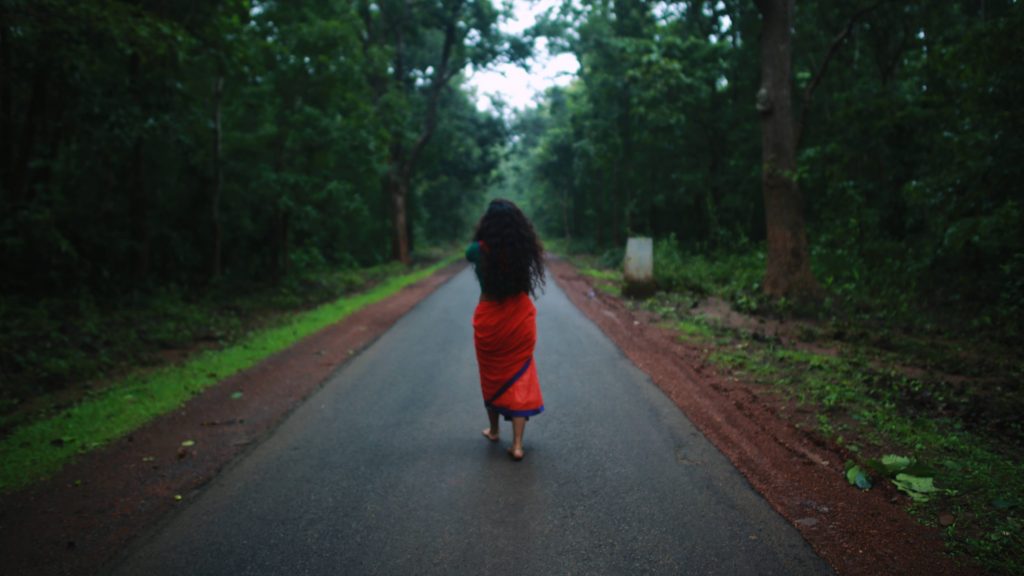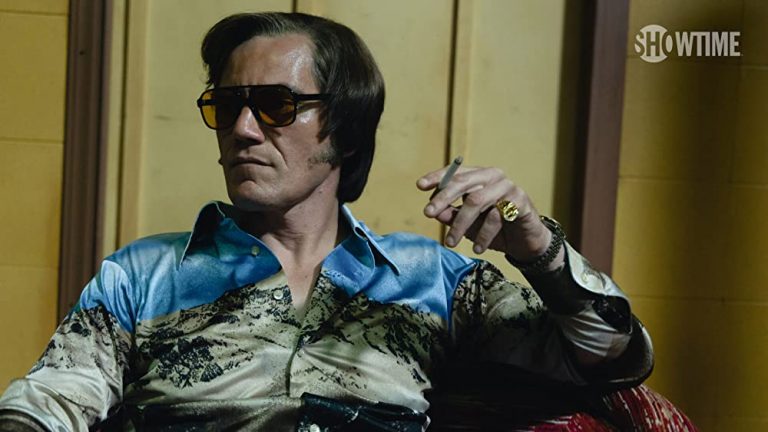Jahnabi (2019) Review: In his debut feature film as a director, Anirban Dutta has aimed for the stars. Revolving around a woman’s journey as she becomes aware of her place in the larger world, with the River Ganges as her sole companion, Jahnabi is a film that consistently treads the path less traveled by Bengali films in recent memory. Disguised as a social drama Dutta’s film interrogates the fissures that are as much geographical as psychological.
Visually sumptuous and thematically rich, Dutta begins the film with a mythological story narrated by a village boatman. The story is about the history of Jahnabi, and how that name had come to be perceived through oral history and percolated throughout the ages.
Related to Jahnabi (2019): Maali: A Subtle Effective Drama
The focus then shifts to the woman (Jahnabi Mitra) and engrosses itself with her journey. She wanders near the banks of the river, lives vicariously. Nothing is directly told about her past or her present, but she gets married to Lohit (Ranadhir Biswas) and the rest of the film patiently traces her journey of faith, acceptance, and longing.
Shot with a poetic eye by Soham Dey, Jahnabi (2019) develops its visual narrative bereft of any screen dialogue. The images fill the screen and play out at length, necessitating the absence of words and actions. Jahnabi’s journey is infused with the journey of the River Ganges, where both the bodies are constantly in motion and develop according to seasonal varieties.
Dutta manages to create a blueprint of an alternate universe where there is a necessary communion with the elements of nature, where the relationship is more than just a means of ecological survival. The lack of a regular story might put off some viewers but the seed to understanding what Jahnabi develops to do lie in its absence.
Aided with the use of poems and songs of the milieu, it creates a symphony of sounds and images that come together in fragments, not as a traditional narrative. It is safe to say here that Dutta is consistently trying to erase the boundaries between story and narration, history and fiction, to develop images that have no embedded systems of meaning attached to it. Take for instance how the image of Jahnabi opening her bangles on the shores appears several times throughout the film, and each time, there’s a different connotation attached to it that is never underlined for a single understanding.
Clearly enough, Jahnabi (2019) tethers on its visual tapestry for a bit too long for the comfort of a regular audience. It tests your patience, but if one can submit to its vision without bothering about the structural components and systems. The endeavor demands this time and acceptance, independent of the clutches of the blueprint entertainment industry that is replete with routine recycling of stereotypes.
Questions might arise that how does the River is embodied in Jahnabi’s existence, what is the reality of such a juxtaposition- questions that seek immediate replies- one that Jahnabi’s reluctant to answer. Dutta’s direction doesn’t thrive on inference, but rather on interpretation, one difference that provides with immense depth and necessary connection.
Also Read: Bulbul Can Sing (2019)
Certainly, Asha Jawar Majhe and Rajlokkhi and Srikanto are two recent films that instantly come to mind in this regard, but Jahnabi is as much an original as it conceives itself to be. In its equation with nature and humans, Jahnabi delves into the realm of the metaphysical to subtly introduce issues akin to climate change and gender issues together in the same unit. Subhangi Swarup’s debut novel “Latitudes of Longing” instantly comes in context here, where ghosts from the past inhabit the present and live together.
Jahnabi (2019) is a rare independent Bengali film that truly challenges its medium and dares to take liberties with its norms. It also places Dutta as a brave new voice in Indian independent filmmaking. Deftly realized, it is a condensed, sublime experiment that demands to be seen.



![Salt of the Earth [1954] – A Landmark American Independent Cinema on the Working Class](https://79468c92.delivery.rocketcdn.me/wp-content/uploads/2021/07/Salt-of-the-Earth-1954-768x432.jpg)




